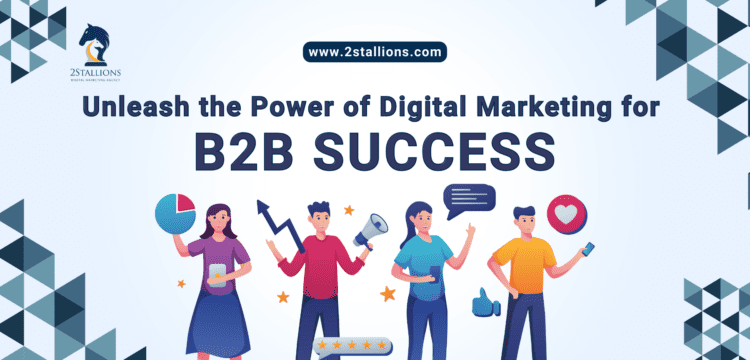
Harnessing Digital Marketing for B2B Growth and Competitive Edge
In today’s fast-evolving business environment, digital marketing has emerged as a cornerstone for success in the B2B sector. As traditional methods lose ground to innovative digital approaches, businesses must adopt robust digital marketing strategies to connect with their target audience, generate leads, and build long-term relationships. This article explores the transformative role of digital marketing in B2B success, highlights its key benefits, and outlines actionable strategies to drive results.
The Role of Digital Marketing in B2B Success
Digital marketing bridges the gap between businesses and their target audience by enabling personalized communication, targeted campaigns, and measurable outcomes. It empowers B2B companies to create a strong online presence, enhance credibility, and foster meaningful connections with decision-makers across industries.
Key Benefits of Digital Marketing for B2B Businesses
Cost-Effective Promotion: Digital marketing offers a budget-friendly alternative to traditional methods, delivering high ROI through targeted strategies.
Measurable Results: Tools like analytics platforms help track campaign performance, enabling data-driven decision-making.
Personalized Communication: Tailoring content to meet the unique needs of potential clients fosters trust and engagement.
Industry-Specific Targeting: Digital marketing allows precise targeting of niche sectors, ensuring relevance and efficiency.
For example, a tech firm offering solutions for the healthcare industry can craft campaigns tailored to hospitals and clinics, positioning itself as a trusted partner with industry expertise.
Effective B2B Digital Marketing Strategies
Search Engine Optimization (SEO):
Optimizing websites and content for search engines boosts visibility and attracts high-quality organic traffic. Using industry-specific keywords ensures that potential clients can discover your business when seeking solutions.
Social Media Marketing:
Platforms like LinkedIn and Twitter are essential for building industry connections, sharing thought leadership content, and generating leads. Engaging with professionals and showcasing expertise enhances brand credibility.
Email Marketing:
Email marketing delivers personalized messages directly to prospects, nurturing relationships and driving conversions. Automation tools streamline campaigns, ensuring timely delivery of targeted content.
Content Marketing:
Producing valuable resources such as blogs, whitepapers, and webinars positions your business as an authority in the field. Addressing industry challenges through insightful content builds trust and attracts inbound leads.
Influencer Marketing:
Collaborating with industry influencers amplifies your reach and establishes credibility. Influencers bring trust and exposure, making it an effective way to connect with new audiences.
Overcoming B2B Marketing Challenges
B2B companies often face challenges like long sales cycles, resistance to change, and data privacy concerns. Overcoming these requires leveraging analytics to refine strategies, maintaining transparency in communication, and offering value-driven content that addresses client pain points.
Conclusion
Digital marketing is no longer optional—it is an essential driver of B2B success. By integrating strategies like SEO, content marketing, and social media engagement, B2B businesses can thrive in the competitive digital landscape, connect with their audience effectively, and achieve sustainable growth.